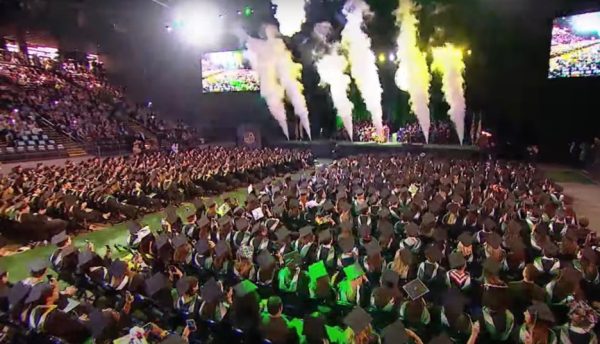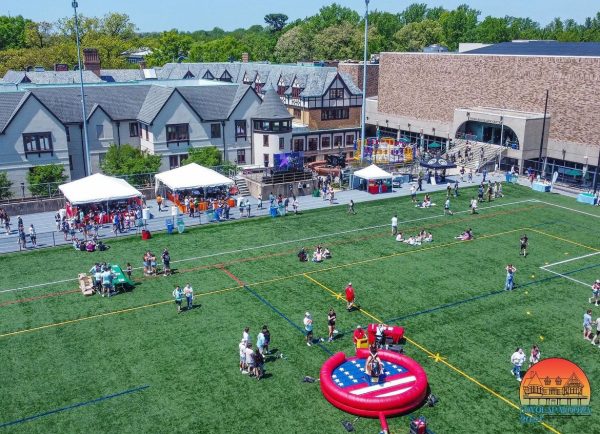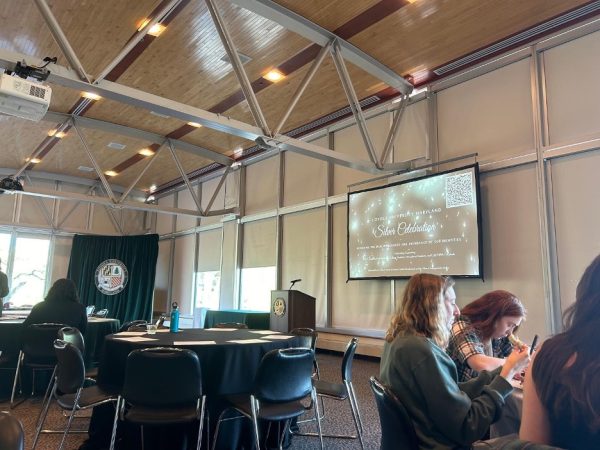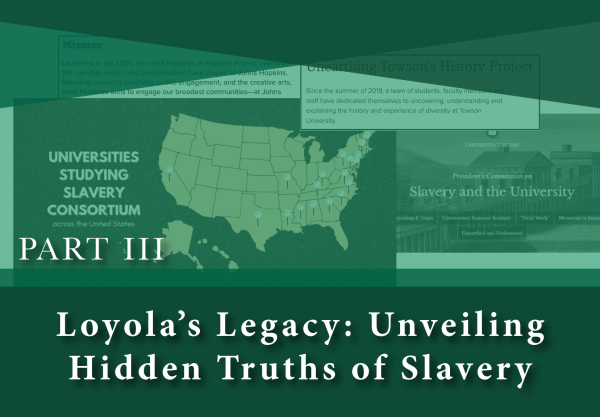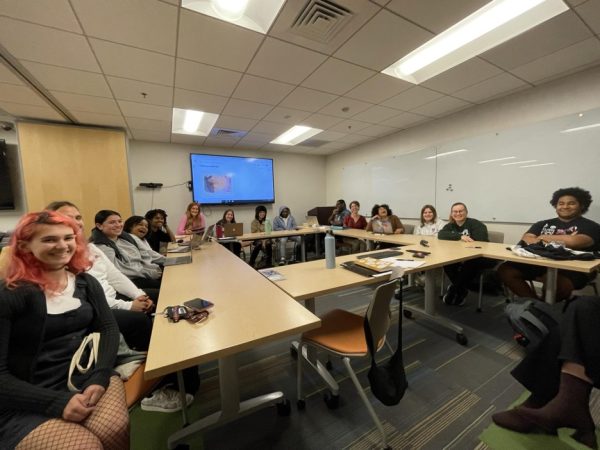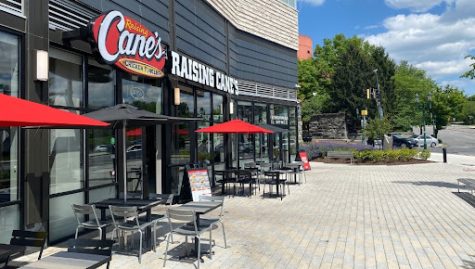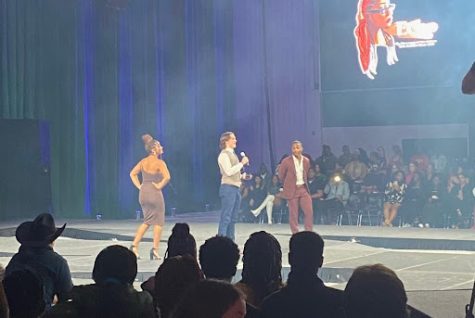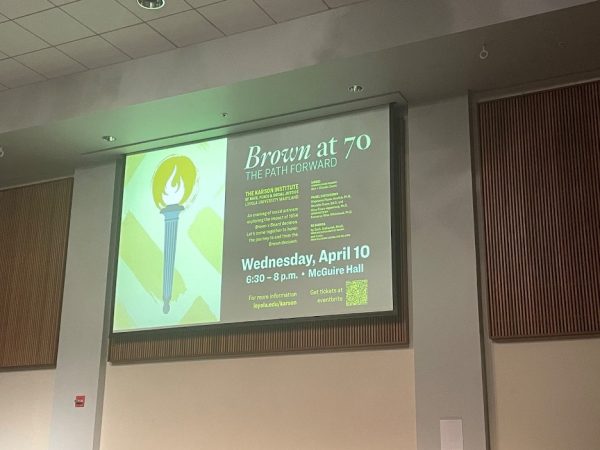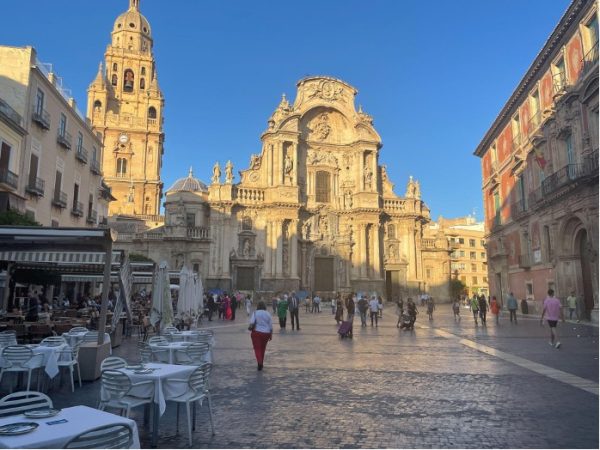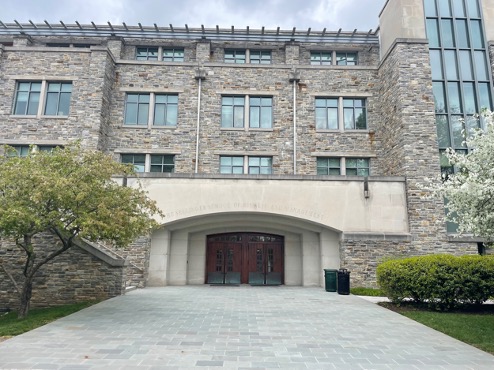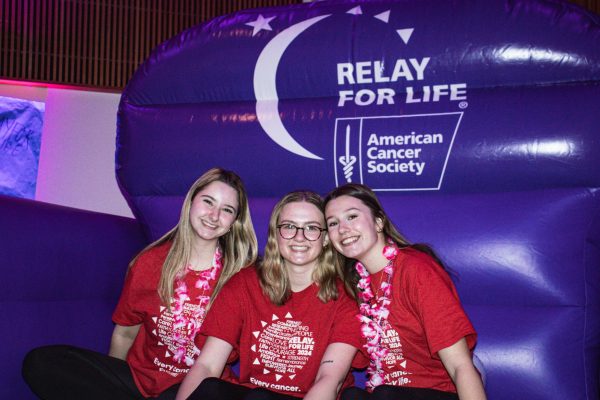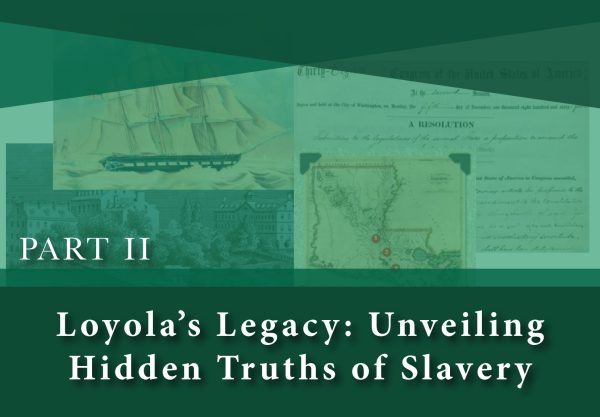The New Hound Activities Programming Board Set to Combine All Your Favorite Student Organizations

Student Engagement via Instagram
From organizing trips to Hershey Park and Washington Wizards games to talent shows in the student center and Loyola pullover giveaways, Student Engagement is everywhere on and off campus, something Loyola students may not realize. Aside from the over 150 student-run clubs and organizations, there are about seven leadership programs, including SuperFans, OPTIONS, Campus Activities Board (CAB), Evergreens, and SGA that all aim to create fun and diverse events for students, with the help of Student Engagement.
Sara Scalzo, director of student engagement, began seeing that the events calendar was often booked up by these organizations hosting late-night events at the same time, as well as student complaints of too many emails flooding inboxes regarding upcoming activities. Scalzo also realized that most of these organizations’ constitutions and mission statements were created years ago and were heavily dated, and she decided that it was definitely time to make a change.
“I thought, ‘why are we competing against each other for programming space, resources and people?’ I started to take some time to look at other universities our size and realized for us to have so many different programming boards, it was really a lot, it made sense to me to create more of an umbrella organization to filter them under,” Scalzo said.
This is where HAP comes in. The new Hound Activities and Programming Board will create this umbrella organization, creating committees that will represent clubs like Options, SuperFans, and CAB. The vision, Scalzo explains, is to have a board of six committees: Off-Campus Programming, School Spirit & Greyhound Pride, Friday Night Events, Signature Events & Traditions, Club Connections and Marketing Specialists. These student-filled chair positions will communicate with pro-staff in student engagement, and with one another, and will have committee members to report to who will collaborate to create events and student-run activities.
Each committee will hold different responsibilities; Off-Campus Programming will host three events a semester in and around Baltimore, School Spirit & Greyhound Pride will support athletic events and continue with giveaways and other spirit initiatives, Signature Events & Traditions will hold three larger Loyola-tradition related events each semester (think Relay for Life, Loyolapalooza, and BSA Fashion Show), while Club Connections will communicate with the other 150 student organizations as Marketing Specialists promote the brand and communicate with the rest of Loyola’s students.
“We have created a framework for an organization, and we hope that as we appoint the leaders of committees and students to be members that they will help bring this to life. I don’t want it to feel like it is administrative driven, we want student voice and student opinions,” Scalzo said.
It may still sound a little unclear and according to Scalzo the majority of concerned feedback was based on an initial lack of understanding. The best way to think about what HAP was created for is to think of the signature game, The Battle of Charles Street, Scalzo said. This popular lacrosse game vs Johns Hopkins is definitely on the bingo card for Loyola students four years on campus. Supported by the signature events program, as well as sponsored by Loyola SuperFans, because this upcoming year it is an away game, it will have to be involved in the off-campus programming calendar. This shows how three different organizations will be competing for resources, time and students all for the same event. Scalzo believes that the creation of HAP will allow for a higher quality of events and planned programs, pooling from a larger set of resources and money, and won’t allow students to have to pick and choose which club to be a part of.
Megan Mahony ‘23, president of SuperFans, agrees with Scalzo, saying that the HAP board is a way to integrate all of the campus programming boards to streamline collaboration.
“SuperFans is not being replaced by, but rather incorporated into the HAP board… from a SuperFans perspective we are looking to incorporate and cement more game traditions which are definitively Loyola,” Mahony said.
There have been some questions about how each club’s legacy and mission will endure under this umbrella organization. The president of CAB, Ryan Busby ‘23, as well as CAB vice president and VP of marketing, believe that the idea has some real potential, however, they see the integration as more of a removal of each club’s identity on campus.
“To us, it is unclear how CAB will fit into this new structure. It appears out of all the organizations affected, CAB has the greatest potential to lose its traditions and identity as it is recognized by the student body,” Busby said.
Abby Kaiss ‘23, president of OPTIONS said she thinks that the core of the OPTIONS mission will be represented under the HAP board, whether the logo or branding remains. Kaiss thinks that by being under HAP, their events will reach a bigger audience than they do now, and the committee will be able to host more popular events.
“I’ve been on OPTIONS for almost my whole time at Loyola, so there is an element of sadness that it is, in a way, ‘ending.’ But I truly think that being part of the HAP board will be a positive change for OPTIONS,” Kaiss said. “I think the structure of the new board makes a lot of sense for us and will allow us to do a lot more exciting things in the future.” Scalzo, a strong believer in the Ignatian value of reflection, thinks that this change is worth any potential risks.
“I know that maybe a year from now this may not have panned out the way we thought it would, but it is a starting point and we had to move quickly on it so we can start having programming for September,” Scalzo said.
Applications have now been closed for the upcoming semester but will open again to accept fall first-years, as the committee strives to include everyone’s voices at Loyola. With her open-door policy, both literal and figurative, Scalzo said she is always open for conversation whether to answer questions or to receive feedback and has already had some meetings with club members.







































































































